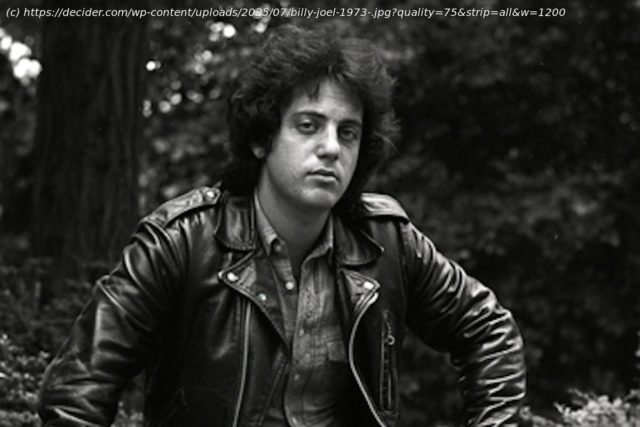Billy Joel gets a well-deserved marquee documentary treatment with And So It Goes, which streams in two big parts.
“I’m doing well – let me screw this up somehow.” From the big hits to the baggage, Billy Joel interprets the arc of his life and career in And So It Goes, a massive two-part documentary airing across two nights on HBO Max. Directed by Susan Lacy and Jessica Levin, and exec produced by Tom Hanks, So It Goes weaves candid sit-downs with Joel, now 76, into an oral history that digs deep into his Long Island roots, his at times pugnacious personality, his family and marriages (including to Christie Brinkley), and the creation of many of his most iconic songs. At over 5 minutes, “Piano Man” is long for a radio hit that’s become a universally accessible singalong. But each part of Billy Joel: And So It Goes clocks in at over two hours!
Opening Shot: His boat, the Alexa, is parked outside. And MiddleSea, his red brick mansion, hugs the hills of Long Island’s north shore. He used to wonder about those rich folks’ lives, when he worked on oyster boats as a kid. “Well,” Billy Joel says in a voiceover, “I own that house now.”
The Gist: MiddleSea is actually for sale, if you’ve got 30 million bucks lying around. But in Part One of Billy Joel: And So It Goes, as he sits with an unlit cigar at a gorgeous grand piano, the mansion is where the multiple Grammy winner and Rock and Roll Hall of Famer recalls the life and times of William Martin Joel. “Love can make you write music. But heartbreak can do the same thing.”
No narration here, but there are cutaways. As Joel recalls his early life as a kid who moved from the Bronx to Long Island, and his initial forays into music – from piano lessons at home to the first “bad Beatles song” he wrote, and acquiring a Hammond B-3 as a member of juke box group The Hassles – we also hear from Elizabeth Weber. Weber was married to Jon Small (also interviewed here), Joel’s bandmate in the Hassles and, later, the scraggly organ-drums duo Atilla. But it was her connection with Joel that came to define a time in their lives that moved the needle on their own romance and his burgeoning career. They got together, she became his manager, and by the time of 1977’s name-making The Stranger, Elizabeth and Billy were finally in control of what they wanted from the music industry. Keep in mind, Joel’s a guy who liked to get into “pissing contests” with the industry and his critical haters.
Weber heard the power and grace in the songs he was writing. “Piano Man,” “Just the Way You Are.” But she also kept him and his band on track. “Some of my friends call me The General,” Weber says in And So It Goes. “There’s no one driving the train if you don’t have a strong, efficient manager.”
We also hear from contemporaries and notables in Part One, including Bruce Springsteen, signed to Columbia Records in 1972, the same year as Joel; Paul McCartney, who says “my ears perked up” when he first heard Joel’s music; and Nas, who says “Piano Man” is like a mirror facing a mirror.






